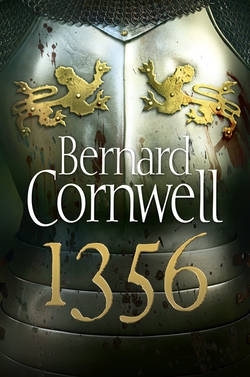Читать книгу 1356 - Bernard Cornwell - Страница 14
Four
Оглавление‘Forgive me,’ Thomas said. He had not meant to speak aloud. He spoke to the crucifix above the main altar in the little church of Saint Sardos that stood beneath Castillon d’Arbizon’s castle. Thomas was kneeling. He had lit six candles, which burned on the side altar of Saint Agnes where a young, pale-faced priest counted bright new genoins.
‘Forgive you for what, Thomas?’ the priest asked.
‘He knows.’
‘And you don’t?’
‘Just say the masses for me, father,’ Thomas said.
‘For you? Or for the men you killed?’
‘For the men I killed,’ Thomas said. ‘I gave you enough money?’
‘You gave me enough to build another church,’ the priest said. ‘Remorse is an expensive thing, Thomas.’
Thomas half smiled. ‘They were soldiers, father,’ he said, ‘and they died in obedience to their lord. I owe them peace in their afterlife, don’t I?’
‘Their liege lord was an adulterer,’ Father Levonne said sternly. Father Medous, his predecessor, had died a year before and the Bishop of Berat had sent Father Levonne as his replacement. Thomas had suspected the newcomer was a spy, because the bishop was a supporter of the Count of Berat, who had once possessed Castillon d’Arbizon and wanted the town back, but it seemed the bishop had sent the priest in order to rid himself of a nuisance. ‘I pricked the bishop’s conscience,’ Levonne had explained to Thomas.
‘Pricked it?’
‘I preached against sin, sire,’ Levonne had said, ‘and the bishop did not like my sermons.’
Since that conversation, Father Levonne had learned to call Thomas by his name, and Thomas had come to depend on the young, earnest priest for advice, and whenever he returned from a foray into enemy territory he would come to the church of Saint Sardos, say confession and pay for masses to be said for the men he had killed. ‘So if the Count of Villon was an adulterer,’ Thomas now asked, ‘he deserved to be castrated and killed? Father, you’d have to put half this town to death if that was true.’
‘Only a half?’ Father Levonne asked, amused. ‘Speaking for myself,’ he went on, ‘I would have preferred God to determine Villon’s punishment, but perhaps God chose you as his instrument?’
‘Did I do wrong?’
‘You tell me.’
‘Just say the masses, father,’ Thomas said.
‘And the Countess of Labrouillade,’ Father Levonne went on, ‘a brazen adulteress, is here in the castle.’
‘You want me to kill her?’
‘God will choose her fate,’ the priest said gently, ‘but the Count of Labrouillade may not wait for that. He will try to reclaim her. The town prospers, Thomas. I don’t want it invaded by Labrouillade or by anyone else. Send her away, far away.’
‘Labrouillade won’t come here,’ Thomas said vengefully, ‘he’s nothing but a fat fool and he fears me.’
‘The Count of Berat is also a fool,’ the priest said, ‘and a rich one, and a brave one, and he’s looking for allies to fight against you.’
‘Only because he’s lost every time he’s tried before,’ Thomas said. Thomas had captured the town and castle from the count, who had twice tried to reclaim the property, and twice had been defeated. The town lay on the southern edge of the County of Berat and was protected by high stone walls and by the river that flowed around three sides of the crag on which the town was sited. Above the town was the castle on the crag’s high rocky summit. The castle was not large, but it was high and strong, and protected by a new gatehouse, turreted and massive, which replaced the old entrance that had been battered down by a cannon. The Earl of Northampton’s banner, the lion and stars, flew from the gatehouse and from the keep, but everyone knew that it was Thomas of Hookton, le Bâtard, who had taken the castle. It was the base from which his Hellequin could ride east and north into enemy country.
